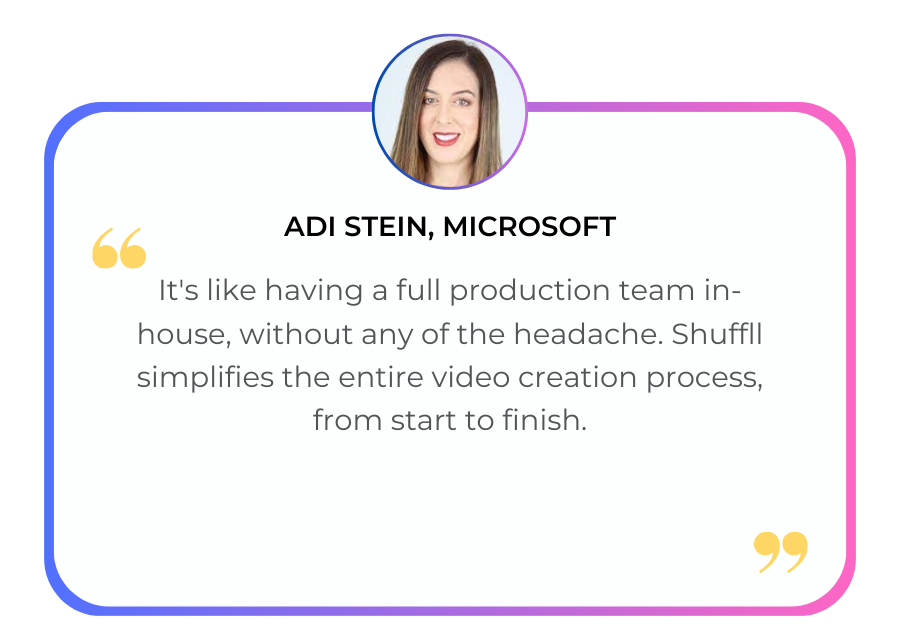How to Run the Perfect Sales Discovery Call
Introduction
Whether new to sales or looking to improve your current sales process, you should start making sales discovery calls first. They are a crucial element of any sales process since they assist in identifying the demands and motives underlying your potential clients’ buying decisions. They also show you how much value your product or service may deliver in exchange for investment.
The good news is that there is no one method to execute a discovery call that is perfect – as long as it produces results! But, there are several recommended practices to follow to ensure that each call goes smoothly:
Get into the attitude of the correct sales.
Sales discovery calls may be daunting. You could be concerned that the person on the phone will think you’re unqualified or don’t know what you’re talking about. You may be self-conscious about how long it has been since your previous sale and wonder if they would notice.
The most essential thing to remember is that this call is about them, not about you! They want someone who knows their problems and can provide solutions to their demands. So relax, pay attention, ask questions when required (but only a few), and demonstrate your expertise in this sector by providing helpful advice wherever available.
Select a target for your call.
Setting a goal for the call is the first stage in executing a good sales call. This might mean “getting a grasp of what the prospect needs” or “building trust by displaying competence.”
After determining your goal, it’s time to ensure that your questions will get you there. It is good to ask open-ended questions, but if they are entirely open-ended, it can be challenging for both individuals participating in the conversation! Instead, consider two sorts of questions: closed-ended and semi-open-ended (with no correct answers).
Plan ahead of time.
- Prepare your ideas and questions ahead so that when you’re on the phone with a prospect, you can focus on listening and learning rather than fumbling for anything to say next.
- Have a strategy for how you want this conversation to go—including any questions or worries that may arise—so that when they do, they don’t throw off your rhythm or derail the process entirely.
Select the right resources to use during your call.
- Use tools such as a whiteboard or use a video.
- Use a screen capture tool like Camtasia or ScreenFlow, which allows you to record your computer screen.
- Use a live chat tool like Skype or Zoom, which allows you to share documents with your prospect while you’re on the call together (and also allows them to see what you’re doing on your computer).
- Record everything using any number of free recording apps like Google Hangouts or Skype Call Recorder (for PC users), then edit out anything irrelevant later on in post-production by cutting out sections of audio and uploading them as separate clips onto YouTube; this way, if someone wants clarification about something that was said during their discovery call with you but wasn’t recorded well enough for clarity purposes–like an important point about pricing structure–they can go back through these clips until they find what they need!
Use questions that are open-ended, not closed-ended.
- Open-ended questions are better than closed-ended questions
Closed-ended questions are easy to answer with a yes or no, but they don’t allow for much discussion. Open-ended questions encourage the other party to share additional information, allowing you to learn more about them and their needs. They also show that you’re interested in what they have to say–which will likely make them feel good about working with you!
Keep it real, keep it relevant, and keep it meaningful.
- Don’t try to sell anything or push for a sale during the call. Your prospect will smell a rat if you do this, and it’ll make them less likely to buy from you later on. Instead of making sales-focused statements, focus on asking questions that help you understand their needs and challenges in more detail – these are the foundation of good sales discovery calls.
- Be honest about who your company is and what they can expect from working with it (for example: “We’re an agency that has worked with other companies like yours.”). This will help build trust between both parties before beginning any kind of formal relationship together.
The more prepared you are, the better your sales discovery calls will go!
- You’ll be more confident. A well-prepared sales rep knows that they have the tools to succeed and can confidently handle whatever comes up during a call.
- You’ll be more organized. When you know exactly what you need from your client, it’s easy to stay on track and stay focused on the right topics during your discovery calls–and this will make them much more productive!
- You can get to the point sooner as there will be less time wasted on small talk. Getting straight to asking questions about a customer’s pain points helps you solve their problem as soon as possible.
- Getting a better understanding of your client’s needs will directly help you aid them with your product or service–or help you solve issues related to it
Conclusion
Sales discovery calls are an important part of the sales process and can help you uncover customer needs and pain points. This ensures that your product or service will be tailored more efficiently toward the needs of your consumers. It is important to make sure that you’re well prepared before any cal by thinking about what questions would be appropriate and useful.
Shuffll is a virtual studio for video production that uses AI to generate copy, art, and storylines.
It helps you reduce the workload and takes you from zero-to-video in minutes.
Making it the ultimate co-pilot for marketers who want to scale their video creation efforts.




